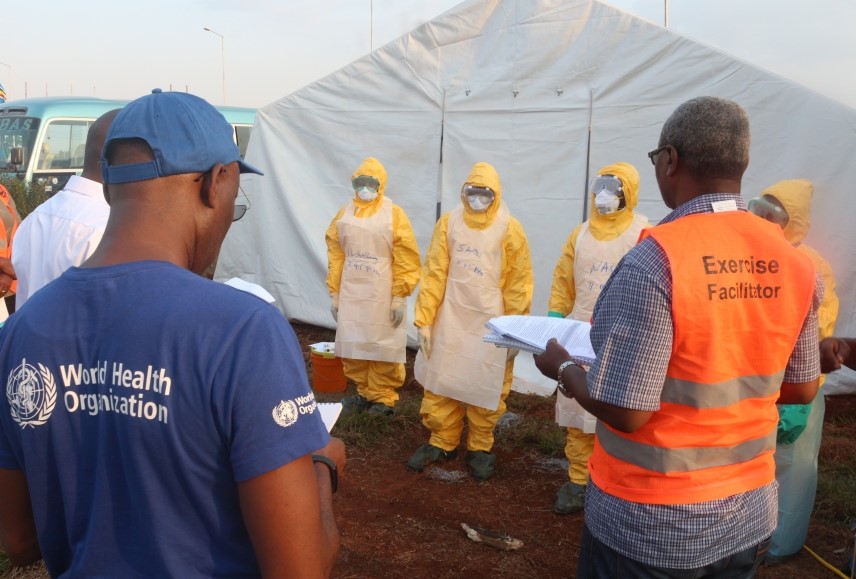Ireland contributes €500,000 to the WHO's COVID-19 response in Tanzania
News
27 April 2020
With Irish Aid support, the WHO in Tanzania will support the National COVID-19 Response Plan.
Tanzania is currently battling the novel Coronavirus pandemic, along with the rest of the world. Infections are wide-spread across different regions in the country and the Ministry for Health has confirmed ongoing community transmission which means that the entire population is at risk of infection.
The World Health Organisation (WHO) recommends that countries interrupt human-to-human transmission early in the epidemic. This is particularly important in Tanzania considering the challenges facing the health care system. Prior to the pandemic there was a shortage of medical staff in the health system with only about half the required posts filled. The maximum capacity for ICU nationally is about 800 beds with very little availability of oxygen concentrators and even fewer ventilators.
The Government of Tanzania has developed a COVID-19 Response Plan, with the support of the World Health Organization. Key to controlling the COVID-19 pandemic in Tanzania is to maximise the level of testing to understand where the multi cluster transmission is happening and how the pandemic is reacting to the public health measures put in place. The COVID-19 plan seeks to increase laboratory testing, surveillance and contact tracing and through isolating and caring for those infected slow the advance of this highly contagious disease. To protect the frontline health staff, testing is key to know who is infected, strengthen infection prevention and control at health facilities to avoid further transmission particularly to vulnerable people, the old and those with other illnesses. WHO plays a key role in supporting the Ministry of Health to coordinate the overall response, strengthen the laboratory system, support Tanzanian scientists, increase surveillance and deploy rapid response teams.
Ireland’s approach aims to strengthen the health system’s capacity to respond to the COVID-19 pandemic while maintaining delivery of other essential healthcare services. Ireland is providing grants to expand testing and surveillance; to finance the costs of hundreds medical staff and Community Health Workers; and to procure the PPEs, supplies and equipment needed to support them. Through our support to the WHO, Ireland has contributed TZS 1.3 billion (€500,000) to increase testing and laboratory capacity, improve coordination, surveillance and case detection, and support the clinical management of patients.
This programme builds on support provided to the primary healthcare system through the Health Basket Fund and is complimented by grants to UNICEF and Benjamin Mkapa Foundation (BMF) to contribute to increase the number of health staff and laboratory scientists to improve health service capacity. The Health Basket Fund will continue to support local facilities in provision of essential primary healthcare services across the country including reproductive health services, child health services and nutrition. The UNICEF grant will support procurement of COVID-19 supplies, equipment and PPE while BMF will recruit and deploy Clinicians and CHWs to the high priority districts to reduce the shortage of human resources and strengthen community surveillance.
Ireland’s initial response to support Tanzania in fighting this disease is the immediate disbursement of TZS 3.75 billion (€1.5 million) in grants. The Embassy is now preparing a second series of disbursements totalling more than TZS 10 billion (€4 million) to strengthen the health system and respond to COVID-19 in addition to a TZS 13 billion (€5 million) contribution to the Health Basket Fund in 2020.


